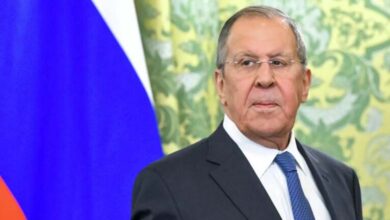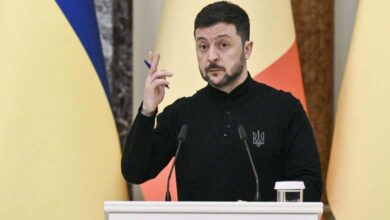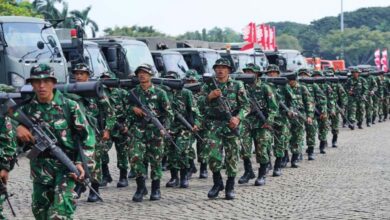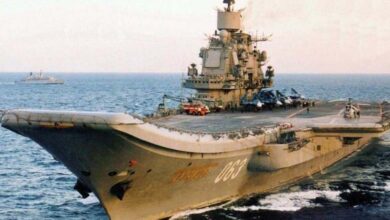Gulf and Europe Strengthen Defense Cooperation in Face of Iranian Escalation
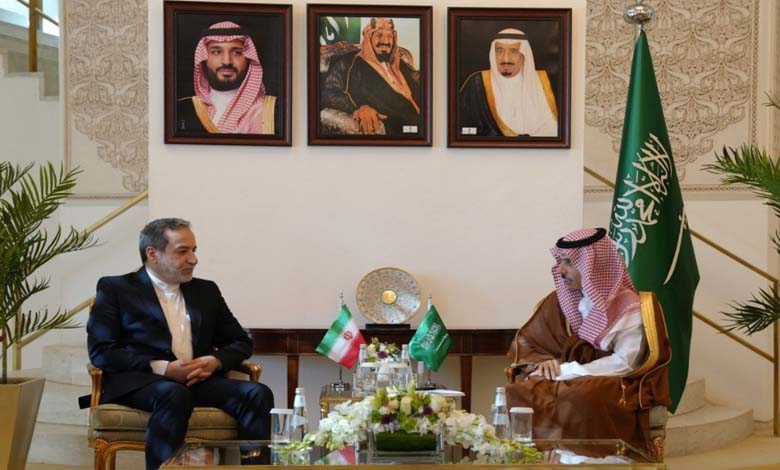
Strengthening security and defense dialogue between the Gulf and Europe represents a proactive step to contain the potential fallout from an open military conflict in the Middle East.
At a time when tensions are escalating in the Middle East over Iran’s nuclear program—and with increasing American and Israeli threats of a possible strike on Tehran—the Gulf Cooperation Council (GCC) states and the European Union are moving to bolster their security and defense partnership. This is a clear attempt to mitigate the consequences of any potential military escalation in the region.
-
Washington Charts a New Course for Nuclear Negotiations with Tehran by Sidelining Europeans
-
“Shadow War”… Europe Plans an Attack on Russian “Ghosts”
On Thursday, Brussels hosted the second “Regional Security Dialogue between the GCC and the EU”, with senior officials from both sides in attendance. The two parties discussed regional and international security challenges, and ways to develop strategic cooperation in response.
According to a statement by Qatar’s Ministry of Foreign Affairs, the meeting focused on “the importance of intensifying coordination in the fields of security and defense, developing mechanisms for sharing expertise, and exploring opportunities for cooperation in peace and security projects at both regional and international levels.”
-
Iran Releases Seven Crew Members of Ship Detained in Gulf
-
American-Qatari agreement puts the fate of Hamas and its leaders in Doha at stake
These talks come amid heightened regional tensions, particularly as Israel and the U.S. reiterate threats of military action against Iran if a diplomatic solution over its nuclear program is not reached. Western security assessments indicate that Tehran is nearing uranium enrichment levels sufficient to build a nuclear weapon—raising deep concern in Gulf capitals.
Observers warn that any strike on Iran could trigger retaliatory actions from its regional proxies, potentially igniting multiple fronts simultaneously, especially in Iraq, Lebanon, and Yemen—where U.S. airstrikes on Houthi targets continue.
-
Prioritizing Interests: What’s Behind China’s Strategy in the Gulf States? China’s Presence in the Gulf States
-
Central Asia and the Gulf Cooperation Council… Convergence Amidst Global Relations Uncertainty
Analysts see the Gulf-Europe security dialogue as a forward-looking measure to contain the fallout of any full-scale conflict. It also reflects a shared understanding of the magnitude of threats to regional stability and the potential ramifications for European interests—particularly in the domains of energy, migration, and maritime security.
In this context, Kuwait’s Embassy in Brussels stated—via the Kuwait News Agency—that the meeting addressed “a range of regional and international issues of mutual interest, foremost among them efforts to promote security and stability in the Middle East and the Horn of Africa.”
-
Iran Warns Atomic Energy Agency Against Issuing a Resolution Against Its Nuclear Program
-
Before the expiration of UN Security Council sanctions, Congress is discussing a new bill imposing sanctions against Iran’s nuclear program
The dialogue also touched on cooperation in maritime security, counterterrorism, transnational organized crime, disarmament, cybersecurity, and the development of a strategic partnership between both sides.
This meeting follows up on a prior session held in Riyadh in January 2024, the first within the regional security dialogue framework agreed upon during the 27th Joint Ministerial Council between the GCC and the EU in October 2023 in Oman.
-
Washington Charts a New Course for Nuclear Negotiations with Tehran by Sidelining Europeans
-
U.S. Report: Israel to Launch an Attack on Iranian Nuclear Sites by Mid-Year
According to an earlier GCC statement, these discussions are based on a strategic action plan launched in 2022, covering a wide array of security issues, including nuclear proliferation, missiles and drones, maritime security, cybersecurity, counterterrorism, combating extremism financing, human and drug trafficking, energy and food security, and disaster response.
This plan reflects a joint acknowledgment that today’s security threats are no longer solely local or regional—they are global and require cross-border collaboration, especially amid a fragile international security architecture and growing geopolitical crises.
-
January 13: Iranian-European Talks on the Nuclear File in Geneva
-
Western Maximum Pressure Campaign to Prevent Iran from Acquiring Nuclear Weapons
From the European perspective, this cooperation is seen as part of a broader effort to protect vital interests in the Gulf, which remains a key energy source and a strategic trade corridor. Gulf security is also viewed as a cornerstone of any European security vision for the Mediterranean and southern Europe.
Experts agree that Gulf-European security coordination is likely to expand further in the coming period—particularly if the Iranian nuclear crisis remains unresolved diplomatically or if indirect confrontations between Iran and the West intensify on Arab soil.






